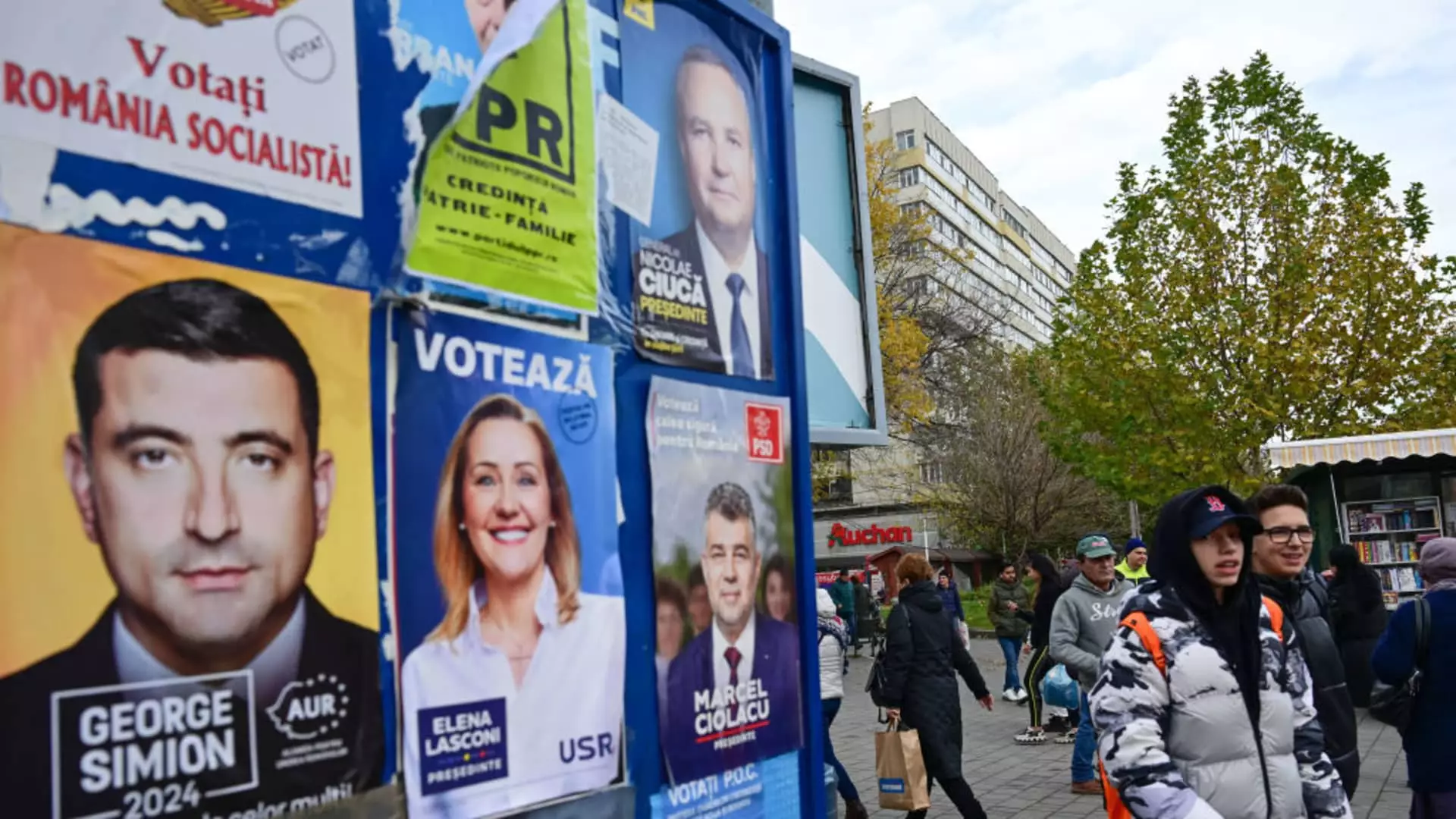The recent presidential elections in Romania unveiled a political landscape marked by unforeseen twists and turns, as far-right independent candidate Calin Georgescu emerged as the frontrunner with 22.94% of the votes. This significant achievement caught many by surprise given that the majority of pre-election polls predicted his support would hover around single digits. The results indicate not only a shift in voter sentiment but also a growing inclination towards candidates who resonate with far-right ideologies and pro-Russian sentiments.
Georgescu’s positioning within the political spectrum has raised eyebrows, particularly due to his ultranationalist stance and vocal opposition to military support for Ukraine. His campaign strategy predominantly utilized social media platform TikTok, an unconventional approach that evidently struck a chord with younger voters disenchanted with traditional political methods. This unexpected popularity highlights the evolving dynamics of modern electoral campaigns, where social media influence cannot be underestimated.
Following Georgescu, pro-NATO candidate Elena Lasconi, leader of the Union Save Romania (USR) party, managed to secure the second position with 19.17%. Lasconi represents a stark contrast to Georgescu, advocating for firm military support for Ukraine and pushing for anti-corruption measures and reforms within Romanian institutions. She stands as a beacon for pro-European sentiments and has notably championed civil unions for same-sex couples, although she draws the line at supporting same-sex marriage. Her rise to prominence suggests a potential reconciliation of progressive values with mainstream Romanian politics, which may gather momentum in the coming weeks.
Marcel Ciolacu, the current Prime Minister and leader of the Social Democratic Party (PSD), narrowly missed the runoff after garnering 19.16% of the votes, marking a historic moment as the PSD will not have representation in the presidential runoff for the first time since 1989. This shift signals a potential crisis for the PSD, traditionally a powerful player in Romanian politics, and underscores the fragmentation of the political landscape.
The fourth position was claimed by George Simion, the leader of the populist nationalist Alliance for Uniting Romanians (AUR), with 13.87% of votes, further emphasizing the rise of far-right sentiments in Romania. The AUR’s increasing support reflects a worrying trend in Romanian society towards radical and nationalist ideologies, potentially fueled by discontent with the status quo and a longing for change. This shift brings forth questions about the future policy directions and social cohesion in a country grappling with its identity.
With voter turnout recorded at 52.55%, a considerable number of ballots remain to be counted, leaving room for further shifts in the electoral narrative. As the nation gears up for the runoff election on December 8, the dramatic outcomes of the first round signal significant changes on the horizon for Romanian politics, establishing the stage for an intense political battle that reflects deeper societal rifts and aspirations.
As citizens digest these unexpected results, the implications for Romania’s political future will undoubtedly unfold in complex and possibly unpredictable ways, urging leaders and voters alike to navigate the delicate balance between nationalism and globalism.


Leave a Reply